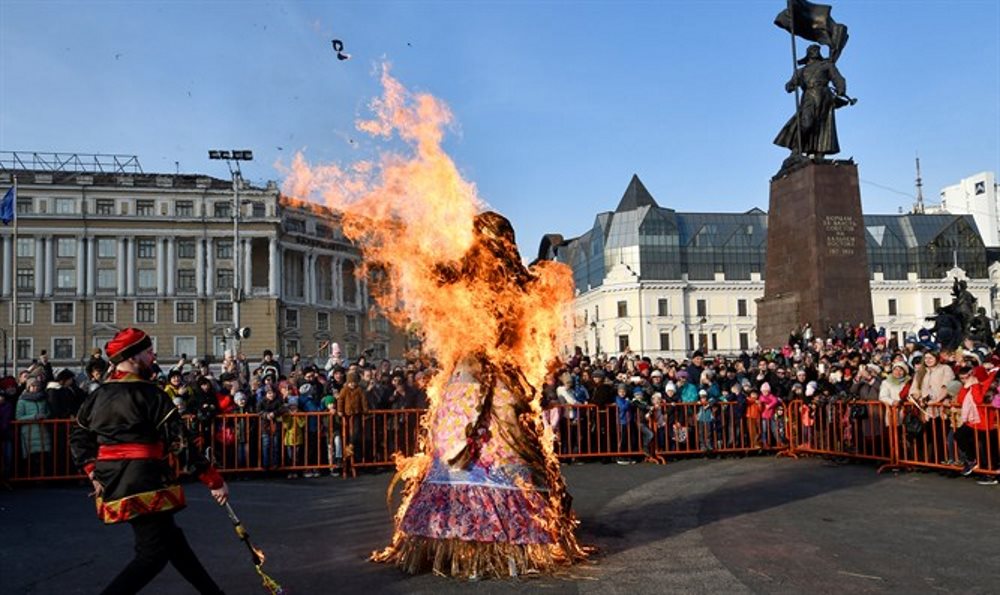The huge effigy was said to represent the Jewish biblical character of Judas Iscariot
Edited by: JV Staff
The World Jewish Congress (WJC) on Sunday slammed a Polish town after video circulated of residents beating, hanging, and burning an offensive effigy of a “stereotypical Jew” in a revival of an old Easter tradition.in a revival of an old Easter tradition.
WJC chief executive Robert Singer issued a statement expressing “disgust and outrage at this latest blatantly antisemitic manifestation.”
“Jews are deeply disturbed by this ghastly revival of medieval antisemitism that led to unimaginable violence and suffering,” he said.
He added that, “One can only wonder how John Paul II who taught Catholics in his native Poland and all over the world that antisemitism is a sin against God and man would have reacted to this flagrant rejection of his teachings. We can only hope that the Church and other institutions will do their best to overcome these frighful prejudices which are a blot on Poland’s good name.”
As Christian Poles prepared to mark the crucifixion of Jesus the weekend of Easter and Jews marked the Passover festival symbolizing their Exodus from bondage in Egypt, media reports showed photos and video of residents of the town of Pruchnik using sticks to beat an effigy of Judas on Good Friday.
The effigy, which had sidelocks and a large nose, was then beheaded, set on fire and tossed into a river, according to the reports.
The Easter ritual known as “Judgment over Judas” dates back to the 18th century and continued to be regularly performed until the Second World War.
The tradition had been largely abandoned, with only a couple of villages continuing it. Even Pruchnik had appeared to stop in recent years, according to the Polish news portal oko.press.
But anti-semitic concerns have recently resurfaced in Poland, where most of the country’s Jewish population was wiped out in the Second World War.
The Easter ritual known as “Judgment over Judas” dates back to the 18th century and continued to be regularly performed until the Second World War.
The tradition had been largely abandoned, with only a couple of villages continuing it. Even Pruchnik had appeared to stop in recent years, according to the Polish news portal oko.press.
Last year, Warsaw passed a law that originally established fines or a maximum three-year jail term for anyone who refers to Nazi German death camps as Polish or accuses Poland of complicity in the Third Reich’s crimes.
The law sparked a diplomatic storm with Israel, which led Poland to amend it and suspend its enforcement once the countries were able to settle their differences.
But ahead of this month’s elections in Israel, Minister of Foreign Affairs Yisrael Katz reignited tensions when he made inflammatory remarks that “there were many Poles who contributed with the Nazis,” and that “the Poles suckle anti-Semitism from their mother’s breasts,” quoting former Israeli premier Yitzhak Shamir, who was well-known for the kind of radical anti-Polish sentiment not uncommon among Holocaust survivors.
On Monday, the WJC issued a press release in response to the statement by Bishop Rafał Markowski deploring the symbolic lynching of a Jewish effigy in the town of Pruchnik. WJC CEO Robert Singer said that he was “heartened that the Church had taken an unequivocal stand” with respect to this antisemitic incident.
“Jews all over the world look to the Church to continue the struggle against antisemitism pioneered by Pope John Paul II who had called the Jews the older brothers of Christians,” Singer added. “The Church is in a unique position to overcome age-old prejudice and stereotypes. We can only hope that one day a spirit of brotherhood and mutual respect will replace intolerance and hatred in Pruchnik–and that young people will be taught about the horrifying fate of that community’s Jewish inhabitants during the German occupation.”





